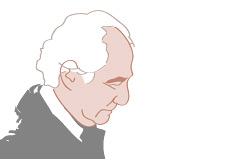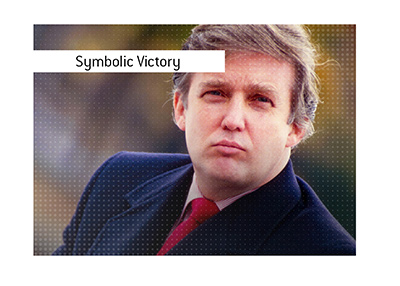Madoff Used Multiple Compliance Techniques To Swindle Billions
 One of the biggest questions that people often ask when it comes to Bernard Madoff is - how was he able to fool so many people? Better yet - how was he able to fool so many SMART people?
One of the biggest questions that people often ask when it comes to Bernard Madoff is - how was he able to fool so many people? Better yet - how was he able to fool so many SMART people?Madoff's scheme, in reality, relied more on the power of influence and less on deception. By employing standard compliance techniques, Bernard Madoff was able to continue to defraud the public for decades without anybody ever asking too many questions.
Two very good books that I recently read brought this to light. They are:
"Influence" by Robert Cialdini
and
"No One Would Listen: A True Financial Thriller" by Harry Markopolos
You may recognize the name Harry Markopolos - he was the man that literally put his own life on the line to try and shut down the Bernard Madoff "Ponzi Scheme". As the book title says, "no one would listen" as Markopolos repeatedly tried to alert the SEC (with no luck) as to the massive fraud that Madoff was perpetrating on global investors.
Dr. Robert Cialdini, on the other hand, penned the book "Influence" which has sold millions of copies and appeared on the New York Times Business Best Seller List.
The book talks about different compliance techniques and how they are used against all of us on a daily basis.
When you read the two books, it quickly becomes apparent that Bernard Madoff was able to fool so many different people by using various compliance techniques. He wasn't just smooth - he also understood human psychology and was a master manipulator, qualities that are found in any con artist.
Let's take a quick look at the different compliance techniques that Madoff used:
Authority - as Cialdini states, people obey authority figures. A constant theme in "No One Would Listen" is that people REFUSED to question Madoff because of his credentials. Madoff, in addition to running Madoff Securities (which at one time was the largest market maker on the Nasdaq) for many years, also served as Chairman of the Board of Directors on the NASD and was also on the Board of Governors. Madoff has impeccable credentials and no one wanted to even consider that he was doing something shady.
Reciprocity - the idea that people tend to want to return favors. Madoff made every "client" of his seem like he was doing them a favor by letting them "invest" with him. In reality, Madoff was saying this to everybody that had placed money with him. By seemingly doing his clients a "favor" by allowing them to invest in his company, Madoff was able to inspire intense loyalty from his clients.
In addition, Madoff also made the "smart" (smart in terms of being able to swindle more money) decision of paying the "feeder funds" more money than they would have gotten almost anywhere else, and taking less money for himself. Obviously these feeder funds benefited from these higher fees as they made more money for themselves, but Madoff's willingness to pay out more money to these funds also created some very strong bonds that resulted in even more cash being funneled into his company.
Consistency - People were unabashedly supportive of Madoff and his abilities. Cialdini maintains that once people commit to something, they tend to stick with it, even in the face of mounting evidence that might prove them to be wrong.
People who vouched for Madoff continued to vouch for him, even if they had their own doubts about how Madoff was able to produce such consistent returns. As Cialdini maintains, people want to be viewed as being consistent with their positions.
Scarcity - Madoff, as mentioned before, made people believe that he was doing them a favor by allowing them to place their money with him. Madoff made people believe that he was very particular about who he was accepting money from, and that the people who were fortunate enough to be "accepted" by Madoff were the lucky ones.
The "scarcity" principle of compliance was key in getting people to leave their money with Madoff for such a long period of time, even if they had their doubts about how Madoff was generating such amazingly consistent returns. People believed that they were lucky to be able to invest with Madoff, and that not everybody else was afforded this same opportunity. For that reason, many people were afraid of pulling their money from Madoff for fear of not being allowed back into the exclusive "club".
Social Proof - people tend to do the things that everybody else is doing. Although Madoff "swore people to secrecy" as to whether or not they had invested money with him, people still talked. Thinking about placing your money with Madoff? Maybe you attend a dinner party and gently broach the subject of Madoff with multiple people. What if all of these people pulled you aside and said "Oh yes, I have my money with Bernie, and he does a great job for me." Odds are that you are going to end up placing your money with Madoff, even if you have doubts as to how he is generating his returns. Social proof at work.
Liking - people are influenced by people that they like. This is a no-brainer. Not only was Madoff well-liked (as mentioned, he was very smooth, manipulative and was heavily involved with various charities), but he was also able to influence other people to persuade others as well. Not to say that other people knew about his scheme and actively helped to solicit new clients, but Madoff was able to create a sort of "viral marketing" campaign that was very successful in bringing in new money to the firm. And, as we all know, this is how Ponzi schemes work - they pay off older investors with the money from new investors.
Madoff had a number of very influential clients who surely helped to spread the word about what a fantastic investor and person Bernard Madoff was. Look no further than the feeder funds that helped to supply Madoff with capital - each feeder fund basically made their money by telling the world about how great of an investor Bernard Madoff was.
--
Bernard Madoff's usage of these six compliance techniques, along with the incredible ineptitude of the SEC, allowed him to stay in "business" for many years.
Source: "Influence" by Robert Cialdini
Source: "No One Would Listen: A True Financial Thriller" by Harry Markopolos
Filed under: General Knowledge



